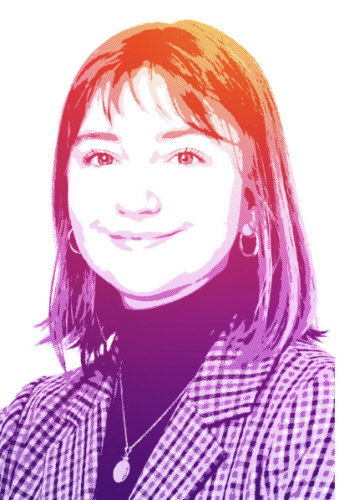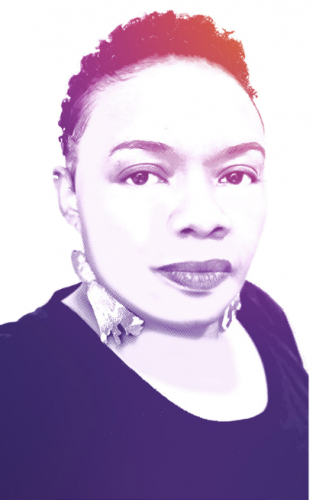Researching the Answers
Bettering the world drives today’s TCU students toward solutions.
Researching the Answers
Bettering the world drives today’s TCU students toward solutions.
Things that current Horned Frogs take for granted as TCU celebrates its sesquicentennial were unimaginable 50 years ago, and the cycle will likely repeat itself 50 years hence as the university hits its bicentennial. Today’s students are hard at work to ensure that what they are studying will improve lives and society for decades to come.

Rebuilding Strength
Caleb Voskuil, a PhD candidate in health sciences with an emphasis on kinesiology, has always loved exercise and sports. In partnership with Joshua Carr, an assistant professor of kinesiology, he is studying ways to improve the rehabilitation experience after an orthopedic injury.
Voskuil’s focus is on how strength can transfer to an injured limb by performing resistance training with the healthy limb. It has to do with the two sides of the brain talking to each other.
“Your brain wants to maintain balance,” he said. “So if one side is doing something, the other side wants to do it, too.”
His study involves individuals with ACL injuries, a tear of a crucial knee ligament that can be devastating, especially for athletes.
Voskuil said he is passionate about bettering himself while helping others reach their goals.
“Life is a blessing, and we have such a limited time here to take advantage of this fact,” he said. “We must take the time to be the best that we can be, refining our God-given abilities and using them to bless those around us.”
— Liliana Green
 The Bigger Picture
The Bigger Picture
Brooke Newell ’23 came to TCU from Colorado with an eye on medicine. Instead, the John V. Roach Honors College graduate in earth systems science decided to take the principles she learned in pre-med courses and focus on their impact on the environment.
Her research in earth systems sciences, with an emphasis on biogeochemistry, zeroes in on the commonly used engineered nanoparticle polyamidoamine and how it interacts with minerals in the environment.
Nanoparticles are larger than average chemical molecules but can’t be seen with the naked eye. Side effects of the man-made nanoparticles are unknown.
As humans make these materials for everyday use in engineering, medicine and cosmetics, Newell is studying what happens when they filter into the environment.
“Fifty years from now, if we learn that we need to mitigate engineered nanomaterials in the environment, it’s going to be hard to do without having the basic knowledge of how they interact with soil minerals,” Newell said. “I really care about community impact behind my research, scientific communication and mentorship to those who wouldn’t normally receive it.”
— Ryann Swanson
Still the Muse
 Jeanne Duval was the romantic partner of 19th-century poet and critic Charles Baudelaire and inspired some of his most famous writings. Yet it’s almost as if she were erased from the record after Baudelaire’s biographers blamed her for his downfall.
Jeanne Duval was the romantic partner of 19th-century poet and critic Charles Baudelaire and inspired some of his most famous writings. Yet it’s almost as if she were erased from the record after Baudelaire’s biographers blamed her for his downfall.
Art historian Shelby Bennett ’23 MA used visual depictions of Duval to investigate how she became a symbol for exoticism, working women and modernity in 19th-century France.
As a working, mixed-race woman living a bohemian lifestyle, Duval was an ideal muse for Baudelaire and artist Edouard Manet to explore ideas about contemporary life, racial mixing and the place of women in modern France.
Nearly 150 years later, Bennett discovered that Duval’s story still inspires artists.
“Although Duval was a signifier of the exotic, modern and erotic for artists of her time,” Bennett said, “her signification has evolved to evoke Black women’s erasure, marginalization and loss throughout history for contemporary artists and writers.”
— Adrianna Martinez

Full Picture
Angela D. Mack ’23 PhD grew up in Fort Worth’s 76104 ZIP code, where a police officer fatally shot Atatiana Carr-Jefferson in her home in 2019. The homicide spurred Mack’s doctoral research in rhetoric and composition.
Her project told the Black lived experience to maintain the memory of Carr-Jefferson and to disrupt the negative associations with the historically Black 76104 neighborhoods of Morningside, Hillside and Terrell Heights. The ZIP code has the lowest life expectancy in Texas and high poverty and crime rates.
Mack challenges the perception of the residents as being in crisis. She interviewed and photographed residents, attended community events and worked with a neighborhood nonprofit group, BRAVE/R Together, which seeks equity in health care, education and more.
Mack said she hopes her research will expand opportunities to connect the university and its surrounding communities while continuing to bring awareness to the legacy of Carr-Jefferson.
— Pamela Guerrero
 Clearing the Smoke
Clearing the Smoke
A mountainous region in Nicaragua wouldn’t seem to be a den for dirty air, but pollution is widespread in homes. Worse, an everyday task is causing breathing issues for families.
“It’s their wood fires that they use for cooking. Just the mere fact of them heating up that little fire exposes them to levels of air pollution that are on par with being a multipack-a-day smoker,” said Stephanie Schaumberg ’23 MD.
Working with Jim Huffman, associate professor of professional practice in engineering, and his Beyond the Light Project, Schaumberg helped monitor residents’ health after the implementation of chimneys. TCU’s College of Science & Engineering manufactured the chimneys, and the health of the members in the pilot program improved.
Schaumberg, now a resident in psychiatry at John Peter Smith Hospital in Fort Worth, would like the program to measure the benefits of the chimneys on residents’ mental health.
“It’s one of those imperfect solutions that has a substantial impact,” Schaumberg said. “We can be sustainable, at least in the near term, and then down the road as nations develop … they will be able to have a better quality of life.”
— Jeff Wilson

Your comments are welcome
Comments
Related reading:
Features
Faculty Roundtable
How are TCU leaders preparing people to solve the challenges of the future through connection culture, civil discourse and a liberal arts core?
Features
Advancing the Arts
The Nordan Fine Arts Scholarship has long attracted talent to TCU.
Features
A Stellar Space
Oscar Monnig’s passion for meteorites is on full display at a TCU gallery bearing his name.